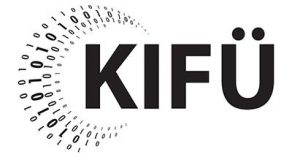
D-Ila in V4
EXPERTS
Deputy Director of the State Institute of Vocational Education and Lifelong Learning, involved in linking European and national policies in education, particularly in improving the quality, flexibility and accessibility of vocational education and training and adult education and promoting systemic changes. She is a member of the European Commission’s Advisory Groups on the European Qualifications Framework and Europass, the EC Working Group on Adult Education and the OECD Working Group on Vocational Training. In 2020, she coordinated the preparation of the Strategy for Lifelong Learning and Guidance 2021-2030.
Senior expert in adult learning and project management, team member of the National Coordinator of the European Agenda for Adult Learning in Slovakia and other projects in the field of adult education run by the State Institute of Vocational Education, the Lifelong Learning Department. Three years of working experience in the Education, Audiovisual and Culture Executive Agency of the European Commission and fifteen years in the Erasmus+ National Agency in Slovakia. Experienced in managing the Erasmus+ project cycle, good orientation in the adult-learning scene at national as well as European level.
Project specialist at the State Institute of Vocational Education with extensive experience in the projects on adult learning, currently working at the Lifelong Learning Department. Zuzana Izáková worked as a project manager at the Erasmus+ National Agency in Slovakia for 12 years. She was responsible for working with and supporting stakeholders active in adult education in the areas of transnational cooperation and implementation of international projects. Strong skills in communication activities and dissemination.
Works for the (Hungarian) Governmental Agency for IT Development as the project leader, one of them being the Digital Individual Learning Accounts in the Visegrad Countries. Currently she also participates in other ILA- and micro-credential-related projects. Formerly, she used to work as a qualifications system and framework expert; she was a member of the team developing the Hungarian Qualifications Framework, where she was responsible for international cooperation and the management of NQF-related projects, including the coordination of the NCP and harmonisation of SROP projects. She was a member of the EQF Advisory Group and she also participated in the Polish and Macedonian referencing process as an international expert. Today, in addition to qualifications systems and frameworks, her main field of expertise are micro-credentials and individual learning accounts.
Led the creation of the nationwide Public Education Information System (PEIS) as a professional manager. Later, also as a professional leader, he led the development of the national action plan against early school leaving without qualifications. He was also responsible for the development and implementation of the Public Education Indicator Management System. As a software developer, he was involved in the Tempus Public Foundation’s CroCooS project. He has worked as Head of the Data Development and Services Department of the Ministry of Human Resources, dealing with EU calls for proposals. He has been involved in the development of digital pedagogical solutions and monitoring systems, including the development of an indicator system to monitor the implementation of Hungary’s Digital Education Strategy and the concept of a national register system for digital competence training. He is currently involved in the design and implementation of an Erasmus+ project to create an adult learning data model linked to the Individual Learning Account that can be tested using AI.
Researcher at WSE and Vice director of Central Examination Board – an agency responsible for conducting exams in general and vocational education and training within the formal education system in Poland. He specialises in lifelong learning and labour market policies. Involved in numerous international projects related to skills development conducted for DG EMPL, Cedefop, ETF, Norway Research Council and others. Author of articles related to skills development (including individual learning accounts) policy papers and documents prepared for the Polish national and regional authorities and the European Commission. Member of the European Qualifications Framework Advisory Group to the European Commission. President of Integrated Qualifications System Council in Poland. Advisor to the authorities of the Republic of North Macedonia, Georgia, England and Northern Ireland, Scotland and Wales. He was the leader of the international TRACK-VET project “Developing, assessing and validating transversal key competences in the formal initial and continuing VET” financed from the Erasmus+ KA2, VET, funds.
Researcher at WSE and qualifications system expert at the Educational Research Institute, Warsaw, responsible for a strategic overview of qualifications system development and building a skills ontology. Member of Sectoral Skills Councils and the Polish Ministerial Micro-credentials Team. He is the author of numerous publications about the education system, and qualifications in Poland, including the Polish referencing report. He is also a regular speaker at national and international events concerning skills and qualifications. His experience includes co-developing the market qualifications standard, method for levelling qualifications to the Polish Qualifications Framework, and actively supporting levelling of over 400 qualifications and developing over 35 new market qualifications by stakeholders. He is involved in monitoring and evaluation of the qualifications system in Poland.
Senior analyst at the National Training Fund. She obtained her master`s degree in sociology and psychology at the Charles University in Prague. Since 2005, she has participated in projects aimed to education and training and labour market analyses, monitoring of education systems, employer surveys, qualification and skill needs analyses, monitoring of short term trends in the labour market and monitoring VET by indicators on both national and international level. She has experience in elaborating sectoral studies outlining current and future trends with a potential impact on employment, especially technology trends. She has wide experience with both qualitative and quantitative surveys among various target groups (employers, policy makers, VET institutions, experts, graduates), incl. online questionnaire surveys, in-depth interviews, focus groups, literature reviews, etc. For 15 years Zdeňka Šímová was a project manager of international project ReferNet which is aimed at analysing and reporting on VET system and policy.
Analyst at the National Training Fund. She obtained a masters’ degree in sociology at Charles University, Prague. During the study, she spent one year at Otto-von-Guericke University in Magdeburg (Erasmus study visit) and completed another academic year as a student collaborator in a qualitative research project at Friedrich-Alexander University Erlangen-Nürnberg in the project of qualitative research to the topic of Glocal Knowledge and intercultural communication. She has experience with both qualitative and quantitative research methods, worked as analyst and project manager on projects with educational and labour market guidance topics and also organised workshops and conferences with a topic of educational and labour market guidance. She participates in analyses and researches in the field of labour market, skills need, further education, higher education, employer surveys as analyst and interviewer (in-depth interviews, focus groups). She also acquired experience in elaborating sectoral studies outlining current and future trends with a potential impact on employment, especially technology trends. She works on drafting reports and preparation of project proposals.
Analyst at the National Training Fund. He obtained his masters’ degree in sociology at Charles University, Prague. During his study, he spent one semester at Koc University in Istanbul within his Erasmus study visit. In NVF, he focuses on the topics of education and labour market. He has worked on a demand/supply analysis of the labour market in the manufacturing industry in Czechia with focusing on foreign workers and digitalization. Recently, he worked on a study focusing on the automotive industry examining technological progress and its potential consequences on qualitative and quantitative changes in the labour market, or on a research of the socio-economic conditions of Ph.D. students at Czech universities. Back in time, at the university, he participated in the projects examining civic engagement, health care policy and sports and exercise activities of Czech youth. He is experienced in the field of quantitative as well as qualitative sociological research.
